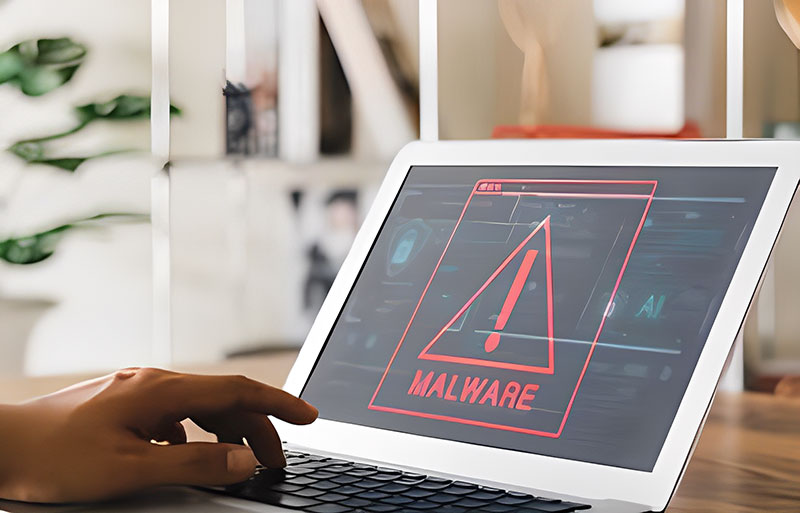The world of torrenting offers a vast array of content, from movies and music to software and documents. However, as with many things on the internet, it comes with its own set of risks. Among these risks are fake torrents, which can be laden with malware, spyware, or other malicious content. Downloading such torrents can compromise your device's security and put your personal data at risk. This article aims to guide you on how to spot fake torrents and ensure a safer downloading experience.
Understanding Fake Torrents

Fake torrents are files that masquerade as legitimate content but are actually designed to harm or exploit the person downloading them. These can be created for various reasons, including:
Malicious Intent
Some fake torrents are created with the sole purpose of spreading malware. Once downloaded and executed, these files can infect your device with viruses, ransomware, or other malicious software.
Phishing Attempts
Other fake torrents may appear legitimate but redirect you to phishing sites where attackers try to steal your personal information, such as login credentials or credit card details.
Spamming
In some cases, fake torrents are used to spread spam or unwanted advertisements. These torrents might contain files that, when opened, launch multiple pop-up ads or redirect you to promotional websites
Understanding the motives behind fake torrents is the first step in protecting yourself. By being aware of the potential dangers, you can be more vigilant and discerning in your downloading choices.
Identifying Red Flags: How to Spot Fake Torrents

Now that we understand the potential dangers of fake torrents, let's delve into the specific signs and indicators that can help you identify them.
Check the Uploader's Reputation
Trusted Uploaders
Many torrent sites have a system of badges or rankings for trusted uploaders. Always prioritize torrents uploaded by these trusted members. They have a history of providing genuine content and are less likely to share malicious files.
User Comments and Feedback
Always read the comments section before downloading a torrent. Other users often leave feedback regarding the quality and safety of the file. If multiple users report issues or warn against downloading, it's a clear red flag.
File Size Mismatches
Unusually Small Files
Be wary of torrents that are significantly smaller than the expected file size. For instance, a movie that's only a few kilobytes is likely fake.
Large Files for Simple Content
Conversely, simple content like documents or images shouldn't have a large file size. If they do, it might indicate bundled malware.
Too Good to Be True

Latest Releases
If a torrent claims to offer a movie that's still in theaters or software that's yet to be released, proceed with caution. While not always the case, these can often be traps set up to lure unsuspecting downloaders.
Examine the File Type
Executable Files
Be cautious of torrents that contain .exe or .bat files, especially if you're expecting video, audio, or document content. These file types can execute commands on your computer and are commonly used for malware.
Facts and Figures
According to a study by Digital Citizens Alliance, nearly one-third of popular torrent sites contain malware. This highlights the importance of being vigilant and discerning when choosing torrents to download. Furthermore, cybersecurity firm Kaspersky Lab reported that fake torrents were among the top methods used to distribute ransomware in recent years.
Use Verified Torrent Clients and VPNs for Added Security
Choosing the Right Torrent Client
Not all torrent clients are created equal. Some lesser-known clients can be bundled with adware or other unwanted software. Stick to well-known and widely recognized torrent clients like qBittorrent, Deluge, or Transmission. These have been vetted by the community and are less likely to pose risks
The Role of VPNs in Torrenting
Using a Virtual Private Network (VPN) while torrenting can add an extra layer of security and privacy to your activities. A VPN masks your IP address, making it harder for malicious entities to target you. Moreover, it encrypts your internet connection, ensuring that your download and upload activities remain private. Opt for a reputable VPN provider that has a strict no-logs policy and offers strong encryption standards.
Final Thoughts
Torrenting can be a valuable resource for accessing a wide range of content. However, the presence of fake torrents underscores the importance of proceeding with caution. By being aware of the red flags and taking the time to verify the legitimacy of a torrent, you can enjoy the benefits of torrenting while minimizing the risks. Always prioritize your digital safety and remember that if something seems too good to be true, it probably is